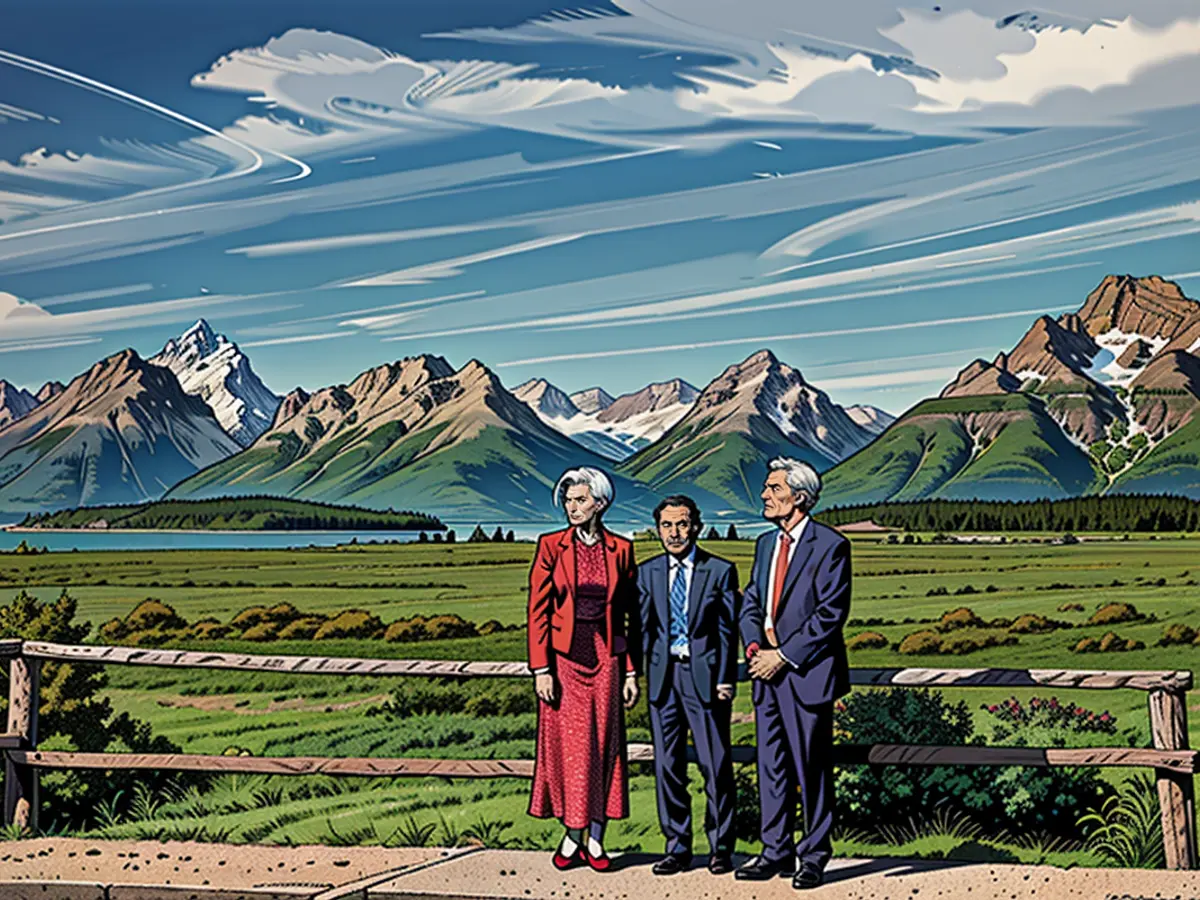Attention shifts towards Powell's Jackson Hole address, as fresh data stirs apprehensions regarding a less robust labor sector.
It's that time of year once more. For the subsequent three days, prominent economists from worldwide will gather and interact with reporters and investors eager for insights pertaining to the economic forecast. However, you don't require an invitation to listen to what will undoubtedly be the focus of the valley: Jerome Powell, the Fed Chair, is set to deliver his keynote address at 10 am ET on Friday.
His speech arrives at a critical juncture not only for the US economy but also for Fed officials themselves.
Last month, the US unemployment rate shockingly surged to 4.3%, reaching its highest level since October 2021. Moreover, employers managed to hire only 114,000 new workers in July, making it the second-lowest monthly gain since December 2020. These disappointing figures triggered apprehensions that the economy could potentially slip into a recession or, even more worryingly, already be in one.
This situation has attracted significant criticism towards the Fed for not reducing interest rates at their previous meeting, which took place just two days before the July jobs report was released. Presently, with a cooling labor market and inflation inching just slightly above the Fed's 2% target, the central bank is expected to decrease rates in September. However, some economists worry that the central bankers delayed their action, and the delay may be intensifying the labor market's deterioration.
Data released by the Bureau of Labor Statistics on Wednesday did little to alleviate these concerns. Preliminary results from the agency's annual review of employment data suggest that there were 818,000 fewer jobs in March this year compared to the initially reported figures.
As a consequence, a growing number of investors now believe the Fed might opt for a half-point reduction in September instead of the typical quarter-point reduction, according to Fed funds futures data. In addition, these data have raised the likelihood that the Fed will reduce rates more than once this year.
We'll find out where Powell stands in this discussion on Friday.
Jackson Hole speeches aren't just empty words
Last year, investors interpreted Powell's Jackson Hole remarks as an indication that the Fed was finished increasing interest rates, despite Powell's statement that further hikes were still a possibility. Markets rallied, with the Dow adding 241 points, or 0.7%. Their interpretation proved accurate – the Fed hasn't raised rates since Last July.
Powell's 2022 keynote Jackson Hole address had the opposite effect. It set off the notion that officials would be resolute in their fight against inflation, even if it meant causing "pain," as Powell put it, to households and businesses. As a result, the Dow Jones Industrial Average, S&P 500, and Nasdaq Composite all closed at least 3% lower that day.
Two three-quarter-point interest rate increases followed at the Fed's subsequent meetings after Jackson Hole that year.
Powell isn't the only US central banker who has utilized Jackson Hole as an opportunity to preview monetary policy adjustments.
For instance, in 2010, then-Fed Chair Ben Bernanke hinted that the central bank was likely to further ease financial conditions as the economy recovered from the Great Recession, stating that "policy options are available to provide additional stimulus." Months following Bernanke's Jackson Hole speech, he introduced a new phase of bond purchasing to bring interest rates down and stimulate the economy after the financial crisis. This initiative is now famously known as QE2, short for quantitative easing.
Then, in his 2012 Jackson Hole address, Bernanke expressed concerns over labor market stagnation. Markets initially dropped after Bernanke's remarks, but eventually ended the day higher. Shortly after the Jackson Hole meeting, the Fed launched QE3.
In 2016, then-Fed Chair Janet Yellen, the current Treasury Secretary, utilized her Jackson Hole address to prepare markets for more rate hikes, stating that she believed "the case for an increase in the federal funds rate has strengthened in recent months." Starting in December 2016, the Fed raised rates approximately every three meetings until 2018.
What Powell might have planned
Economists anticipate that Powell's address will convey a dovish stance: Central bankers who advocate for efforts to reduce interest rates to stimulate the economy when weakness is evident, rather than focusing on bringing inflation down.
The question is, how dovish will Powell be?
The mere mention of Wednesday's significant downward payroll data revisions would signal that a half-point reduction could be under consideration at September's meeting, Citigroup economists noted in a note on Wednesday. Economists from the bank are predicting half-point reductions at both the September and November meeting.
Goldman Sachs economists expect Powell to express "a bit more confidence in the inflation outlook" and possibly mention that officials are paying close attention to labor market data while acknowledging that the Fed is "well-positioned to support the economy if necessary."
Comments like these would reinforce a reduction in September but would still leave the question of the reduction size open until the August jobs report, due September 6, Goldman Sachs economists stated in a note earlier this week.
They don't expect Powell to say anything that implies that the current rate level "is inappropriate in light of the progress made on inflation," if he did, that would boost the odds of a larger September reduction and further strengthen the case for more cuts at future meetings.
Powell, however, won't be the only Fed official at Jackson Hole. Plenty of other significant figures from the central bank, including Kansas City Fed President Jeffrey Schmid and Atlanta's Raphael Bostic, will be in attendance, engaging in impromptu media interviews, which may provide more insight into the economic outlook than Powell.
The business community and investors are closely watching Powell's speech, as it comes at a time when the economy is facing potential recession concerns and the US unemployment rate has reached its highest level in over a year. The Fed is expected to reduce interest rates in September, and Powell's speech could provide clarity on the central bank's plans.
After the release of disappointing employment data, some economists are predicting that the Fed might opt for a half-point reduction instead of the typical quarter-point reduction in September. Powell's speech at Jackson Hole could influence these predictions and influence the direction of the economy and the business world.









